Acoustics & Vibrations Blog Posts
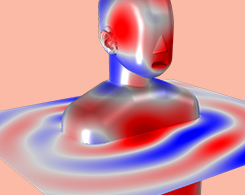
Analyzing the Acoustics of a Head and Torso Simulator
Acoustics engineers designing hearing aids, cellphones, and headphones can perform standardized measurements faster and cheaper with simulation, as shown in this example.
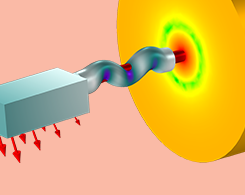
How to Use Solver Suggestions in Acoustics Modeling
When you model large, industry-scale acoustics, ever find it challenging to efficiently solve the problem with the hardware at hand? Enter the solver suggestions in COMSOL Multiphysics®.

Samsung Amps Up Loudspeaker Designs with Simulation
Some organizations reach success and then shift the goal post. Take Samsung, for instance: Although they lead the market for televisions and smartphones, they set their eyes on another goal…
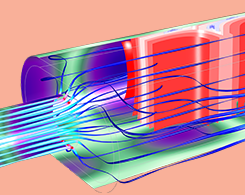
How to Automate Meshing in Frequency Bands for Acoustic Simulations
There is a large frequency range involved in acoustics phenomena, which means that modeling acoustics problems requires meshing a large wavelength range. COMSOL® offers an efficient way to do so.
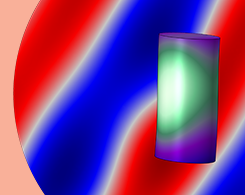
Introduction to Modeling Acoustic-Structure Interactions in COMSOL®
To model an ASI problem, you need to account for the behavior of elastic waves in solids, pressure waves in fluids, and their interaction. The COMSOL® software includes interfaces for doing so.
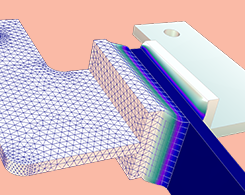
Frequency Response of Mechanical Systems
Read this blog post for a detailed look at damped mechanical systems, a guide to setting up frequency-response analyses in COMSOL®, and a discussion of how to interpret your results.

Analyzing Topology Optimization of a Photoacoustic Spectroscopy Cell
Signals generated via photoacoustic spectroscopy are often weak and difficult to detect. Acoustic cells can be used to amplify the signal, but they need to be designed with sensitivity in mind.

Using the Port Boundary Condition in Acoustic Waveguide Models
By combining several Port boundary conditions, you can easily compute the transmission and insertion loss in exhaust and muffler systems. See more benefits of this feature for acoustics modeling.
